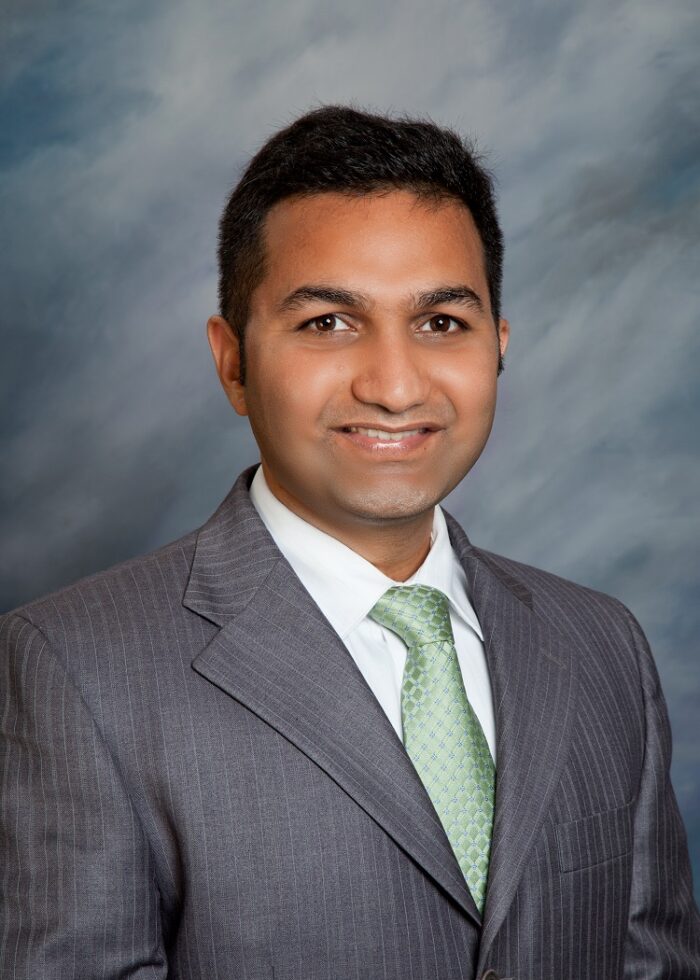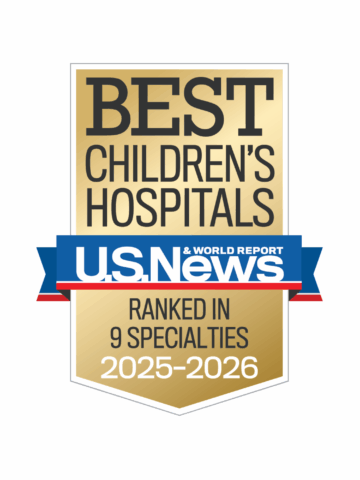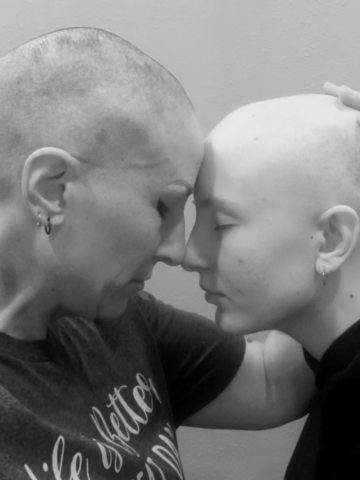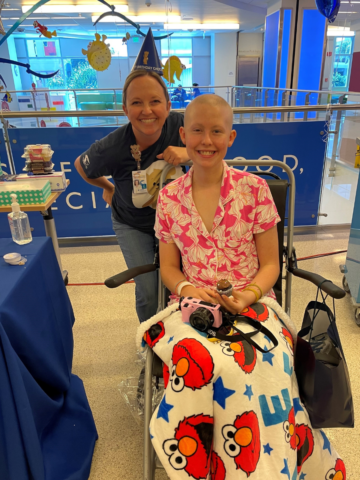Grant provides funding to CHOC for oncology clinical trials, research
CHOC has received a grant from the nation’s largest charitable funder of childhood cancer research to hire a dedicated part-time clinical research coordinator in its Blood and Marrow Transplant (BMT) Program at the Hyundai Cancer Institute.
The $50,000 award from the St. Baldrick’s Foundation, effective Dec. 1, 2022, could lead to much-needed investigator-initiated oncology clinical trials, said pediatric oncologist Dr. Rishikesh Chavan, whose long association with the foundation helped secure the infrastructure grant.

Infrastructure grants support programs and the personnel necessary to open and coordinate clinical trials. CHOC was among 27 hospitals, universities, and clinics in 20 states who were recipients of the St. Baldrick’s Foundation’s latest rounds of grants totaling more than $1.2 million.
Made possible by St. Baldrick’s volunteers and donors, the grants are critical to ensuring that more kids are treated in clinical trials – often a child’s last chance for a cure as researchers seek new drugs or therapies to improve the quality of life for patients and survivors.
“Research is hope, and the dedication and generosity of the St. Baldrick’s community equips researchers to save children’s lives,” said Kathleen Ruddy, St. Baldrick’s CEO. “Countless children are alive today because of volunteers, donors, and researchers. Together, they make more childhood cancer survivors.”
Long ties with foundation
The St. Baldrick’s Foundation funded some of Dr. Chavan’s research when he was a post-doctoral fellow in hematology and oncology at Baylor College of Medicine in Houston in 2010-2011. And over the years, he’s participated in several foundation head-shaving events to create solidarity with kids who lose their hair during chemotherapy.
“I want to organize a head-shaving event at CHOC – hopefully in the spring,” Dr. Chavan notes.
The St. Baldrick’s Foundation grant is important because investigator-initiated clinical trials are more challenging to launch than those sponsored by pharmaceutical and medical device companies, Dr. Chavan says.
While CHOC contributes significantly to frontline therapeutic enrollment in Children’s Oncology Group (COG)-based, other consortium-based, and industry-sponsored clinical trials, there remain major gaps in enrollment to investigator-initiatedbasic and translational studies, Dr. Chavan says.
Institutional barriers to enrollment include but are not limited to a lack of dedicated research personnel/resources to enroll, collect, and analyze data and the inability for patients and families to travel to the hospital for research visits.
“Not unlike other community oncology programs, the most important barrier to research within the Blood and Marrow Transplant (BMT) Program at the Hyundai Cancer Institute at CHOC has been the lack of dedicated research support and protected time for clinical personnel,” Dr. Chavan says.
Nevertheless, CHOC’s BMT Program is well-positioned, he says, to expand its research portfolio and conduct key investigator-initiated translational studies aimed at improving hematopoietic stem cell transplants by reducing toxicities and improving survival.
“With a dedicated clinical research coordinator,” Dr. Chavan says, “we can readily launch and support execution not only of this pilot study but also pursue additional projects that will increase enrollment to basic and translational research projects originating from the BMT Program in the Hyundai Cancer Institute at CHOC and launch new clinical trials with therapeutic intent and benefit patients here as well as globally.”
Seeking improved outcomes
The Hyundai Cancer Institute’s BMT Program is the only pediatric blood and bone marrow transplant program in Orange County and offers a full range of transplant procedures and services including other cellular therapies such as chimeric antigen receptor T (CAR-T) cells.
Most children who may benefit from a blood or bone marrow transplant are those with high-risk leukemias and lymphomas, including acute lymphoblastic leukemia (ALL) and acute myelogenous leukemia (AML); other high-risk solid tumors like neuroblastoma, medulloblastoma and some of other high-risk brain tumors as well as bone marrow failure syndromes including aplastic anemias, hemoglobinopathies like sickle cell disease and thalassemia’s, and several primary immunodeficiency and metabolic syndromes.
Dr. Chavan currently is conducting research on regulatory T cells (Treg) in cancer and stem cell transplant patients. The St. Baldrick’s Foundation grant initially will support this study by helping bring it from the laboratory to impact patient care.
“We aspire to achieve a long-term and sustained cure for patients diagnosed with childhood cancers, including those with high-risk hematological malignancies whose treatment requires transplant and cellular therapies,” Dr. Chavan says. “To achieve this objective, we endeavor to understand how best to harness and optimize the innate qualities of patients’ own immune systems as well as the effects of the new transplanted immune system which is responsible for achieving and maintaining remission by maximizing the graft vs. leukemia effect while minimizing graft vs. host disease, which can be an acute and chronic side effect of transplant — thus improving outcomes.”
In addition, Dr. Chavan says in order to streamline the clinical trials offered to transplant patients he hopes he will be able to launch at CHOC a chronic graft-versus-host disease (GVHD) clinic in the future.




